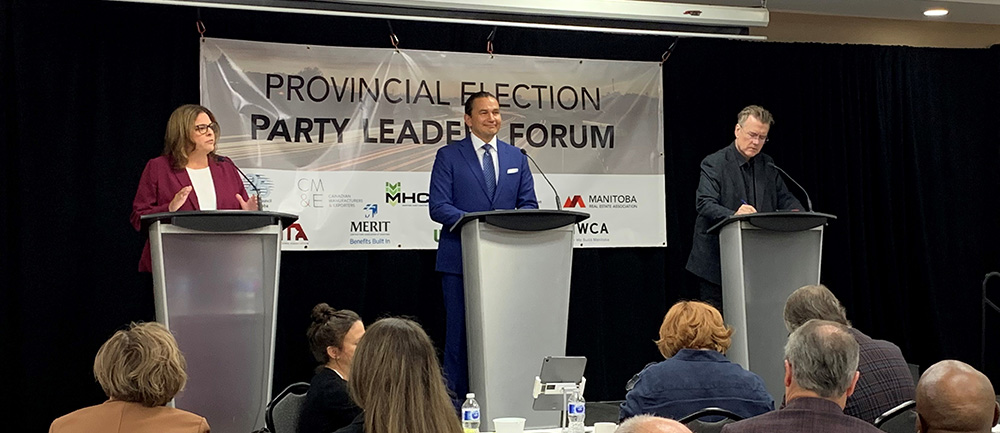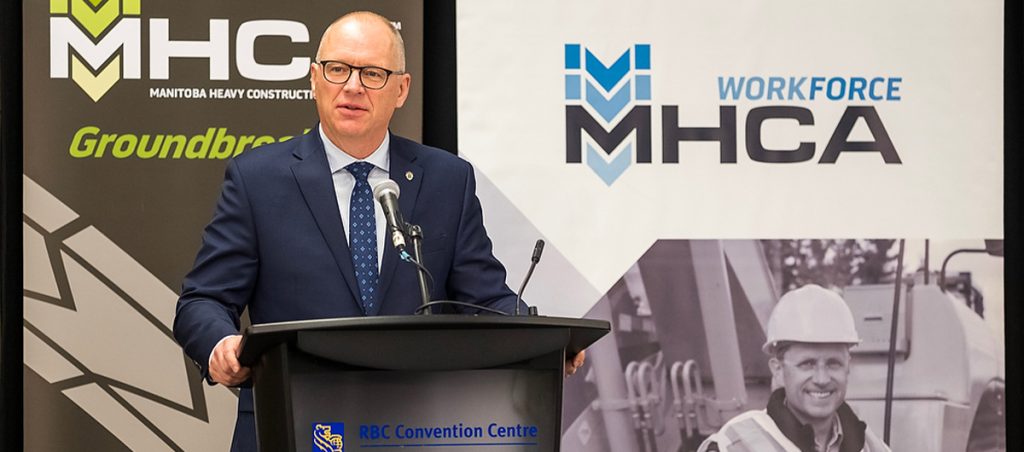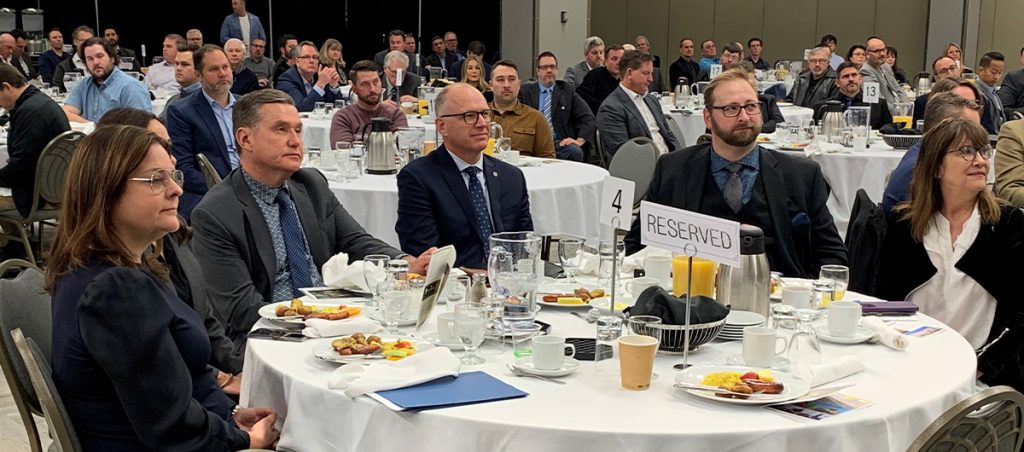Growing the economy key to community safety, services: Forum

The next provincial government must be focused on growing the economy, to tackle the social challenges – homelessness and addictions – and provide relief for Manitobans facing a rising cost of living, all three leaders of the three main political parties agreed September 12.
The party leaders laid out their economic platforms and acknowledged the need for revenues that would be spun off from economic growth to fund core services, at the All Party Leaders Forum – Growing the Economy, hosted by nine leading Manitoba business groups, before some 260 people.
In a comprehensive discussion – moderated by CJOB’s Richard Cloutier and Probe Research’s Mary Agnes Welch – leaders Heather Stefanson (PC), Wab Kinew (NDP) and Dougald Lamont (Lib) laid out platforms of their campaigns, noted general inflation means Manitobans are struggling to keep money in their pockets, contributing to social pressures in our communities struggling with homelessness, addictions and crime.
As with the need to rebuild critical health and education services and supports, addressing broader social issues, they agreed, requires government to invest in the drivers of wealth to create jobs and generate higher revenues from taxes.
The parties have individual approaches but agreed that there are key elements necessary to expand business and trade, thereby generating jobs and higher incomes.
On the issue of trade infrastructure, Stefanson and Kinew committed unreservedly to expanding Kenaston Boulevard, a key transportation route in Winnipeg, and extending Chief Peguis Trail in the city’s northwest quadrant. Lamont said ‘yes’ to Chief Peguis but wants to see a “better business case” for widening Kenason, which he said would amount to building a highway through the city.
The breakfast Forum was hosted by the Manitoba Heavy Construction Association, Canadian Manufacturers and Exporters-MB, Manitoba Home Builders’ Association, Urban Development Institute, Business Council of Manitoba, Winnipeg Construction Association, Merit Manitoba, Manitoba Trucking Association and the Manitoba Real Estate Association, and has been the only election campaign forum to focus expressly on economic growth.
Stefanson went further to say that she would continue to champion a national trade corridor initiative to bring Ottawa to the table on a multi-year investment strategy. As premier, Stefanson was a driving force behind advancing the Canada Trade Infrastructure Plan, a campaign by leading Canadian business organizations, including the MHCA through the Western Canada Roadbuilders & Heavy Construction Association.
Kinew said trade transportation investment is a key pillar in his party’s recognition that “the economic horse pulls the social cart,” adding his government would rebuild Manitoba’s health care facilities and trade corridors as part of its infrastructure plans.
Lamont said a Liberal government would step away from what he has seen as a massive growth of government involvement in the economy, let private enterprise drive development, assisted by a development bank that opened access to capital.
Manitoba Hydro, Manitoba’s wealth of critical minerals and potential as a “green energy” producer all found special mention by each party leader as central movers of future economic power for the province. Lamont said he wants to see more of Manitoba’s raw materials and commodities developed here before being shipped out to customers world-wide. Kinew said Manitoba can do more to develop the green economy to capital on exporting hydrogen and hydroelectricity and, as premier, he would focus on strengthening the province’s trade relationships with the United States especially.
On homelessness, Stefanson said it will require a community effort, but also the involvement of Ottawa; Kinew vowed his party will fix homelessness and Lamont said it has to do with ensuring people have a minimum basic income, that child welfare services work and that employment and income assistance programs “don’t pay people to stay at home and not work.”
“I think it’s important that, as a main takeaway from the forum, each party leader acknowledges that growing the economy is job number 1,” MHCA President & CEO Chris Lorenc said. “We know that without the increased revenues a growing economy returns to government, discussing improved programs for health, education, infrastructure and other core services is moot.”
To watch the video of the full Forum, click here.








